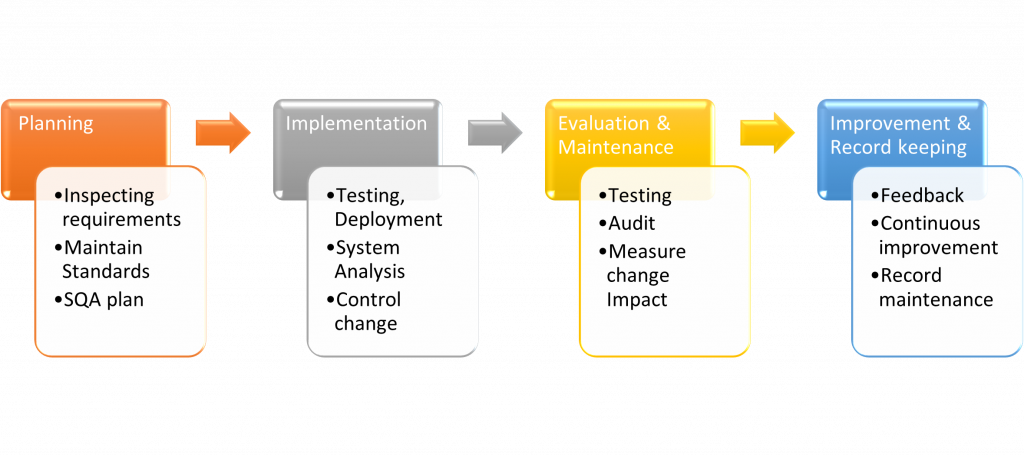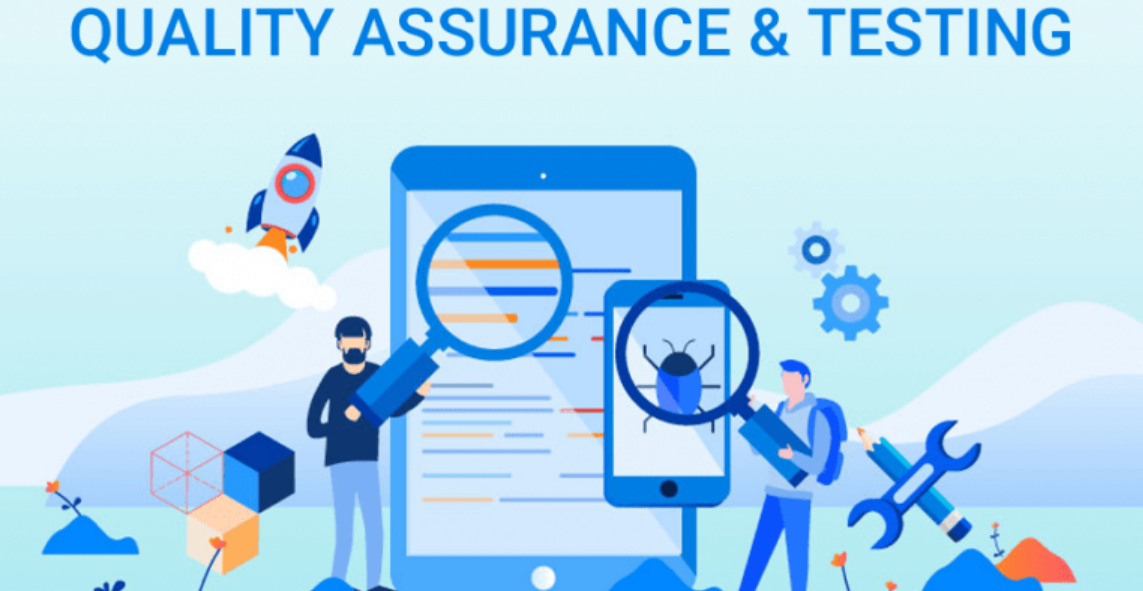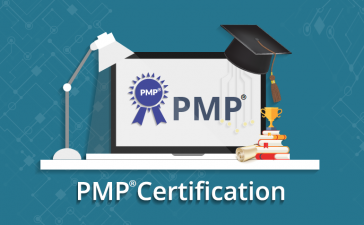Software Quality Assurance (SQA) is a set of strategies, and practices performed to ensure that the quality of a product, or process meets the prescribed quality standards. It is thus a vital component of the Software development process, from the beginning of a product launch to post-installation support.
Software that is underperforming, full of bugs, and hence not performing efficiently can hamper the brand value of any big firm. Therefore, it is strictly necessary to have robust SQA processes to enable efficient working software which leaves clients feeling content. Besides, if you are looking to improve your skills and gain valuable work experience, enrol in a Software Testing Certification Course.
What is Software Quality Assurance?

Software Quality Assurance (SQA) is a set of processes planned and designed to provide quality products to customers. In brief, it involves identifying and weakening the risks, and amending the current systems and processes thereby improving the results. Consequently, product quality is improved.
Types of Software Quality Assurance
1. Reliability SQA
- Records the system’s stability by evaluating its capability to perform productively without malfunctions.
- Measures the rate of error minimization.
- Steady results should be produced in all conditions.
2. Maintainability SQA
- Includes the creation of well-defined encryption and supplementary data which has to be maintained.
- Any changes and code updates will have to be tracked through revision control tools.
- Undertake measures for reduction in bugs, and system failures.
3. Compatibility SQA
- Ensure that the process smoothly functions with other systems and software, in addition to facilitating seamless data exchange.
- Aid in building strong web API which improves the functionality of web browsers.
4. Usability SQA
- Measures both User Interface Design and user-friendliness of the product making sure that instructions and additional information are easy to understand.
5. Efficiency SQA
- Ensures efficient use of system resources.
- Determine and additionally fix problems that affect the software’s responsiveness, speed and efficiency are maintained even with regular use and under adverse conditions.
- Assess product performance at varying user demand levels modifying the time taken for reaction to user inputs.
6. Functionality SQA
- Verify that the product works efficiently, is error-free and meets user expectations in terms of its features and performance.
- Check that the product’s features function per the specified directives, especially how it performs without errors and risking its functionality in unforeseen circumstances.
7. Portability SQA
- Ensures the software runs smoothly across various operating systems and can be adjusted with multiple hardware setups.
- Furthermore, design the product with modular programming to ensure flexibility.
What are the Benefits of Software Quality Assurance?
Meanwhile, every firm aims to develop effective QA methods that help them outperform their rivals in the global business arena. Since its main aim is upholding product quality and thereby keeping end users’ content, firms have to hire software developers who maintain a healthy SQA policy.
1. Reduction in costs and saving time
First, a well-planned, detailed quality assurance plan helps in error prevention in the initial stages of a software development process rather than detecting and fixing them later. Hence, time and money are saved avoiding the need for labor-intensive re-coding and fixing bugs, improving maintenance and efficiency.
2. Improved Quality Products
Secondly, QA delivers the highest quality software processes that adhere to international standards and are thereby reliable and consistent in their performance and standards.
3. Better end-user experience
Third, SQA professionals aim to improve their clients’ user experience and even exceed expectations by providing reliable, error-free, high-quality software thereby providing a more user-friendly interface, and more attractive and accessible websites which not only provide for happy customers but loyal ones as well.
4. Builds and enhances a company’s brand value
Further, suppose there is consistency in providing a high-quality, safe, error-free product. In that case, it will go a long way in building a company’s reputation, preventing damages from legal actions and fines. The company, as a result, enjoys a competitive edge over its counterparts as it becomes its loyal customers’ go-to choice.
5. Risk monitoring and prevention
Then, errors in the software process can lead to unanticipated system failures. Cyber hacking, data breaches, and fraud will harm the organization’s future. Therefore, QA professionals must plan, manage, and mitigate such risks in their testing phase to prevent disasters.
6. Compliance and security
Then, SQA helps in adherence to international standards and best practices. There is compliance with legal, mandatory guidelines and bylaws, data protection, and privacy.
7. Process Improvement
Finally, Continuous Process improvement is one of the many objectives of SQA. Gathering feedback from end-users, developers, and testing agents, investigating into, and incorporating the advice gained helps improve effectiveness, and resource leveraging.
Implementation of SQA into the Software development life cycle
SQA is essential in basically guaranteeing the successful development of software throughout the Software Development Life Cycle (SDLC). Accordingly, we have mentioned below how SQA can be applied to different phases of SDLC.

Planning
QA first commences with systematic planning.
- Inspecting requirements
QA professionals should especially note the client’s requirements and make clear action plans to implement them. This includes aspects like practicality, running speed, stability, and efficiency.
- Maintain standards
Define the guidelines that the software aims to adhere to, and inform and train staff.
- Formulate an SQA plan
This plan fully explains the QA process, including methods and strategies used to ensure compliance with the specified standards. It defines the roles and responsibilities of the SQA experts, and schedules to perform the SQA tasks and products that the experts will review.
An SQA plan records the areas to be audited and reviewed. This includes
Objective
Software design management
Reporting issues and rectifying them
Source control
Records for stocks, servicing, retention
Testing strategies
Implementation
Secondly, Implementation of the QA plan is important to ensure that the software meets the requirements of the set standards.
- Testing and Deployment
They are important stages to check the product quality. SQA experts enforce detailed plans for different Software Testing like unit, integration testing, and system acceptance testing to ensure that the product works smoothly and corrects any errors.
- System analysis
It is performed to check if any adjustments need to be made. In addition, a formal technical review (FTR) is conducted to check the quality of the prototype.
- Control Change
Changes made to the prototype design are observed to check the effect on the software’s functioning. Staged rollouts implement changes to minimize obstructions.
Evaluation and maintenance
Thirdly, it is essential to evaluate software to make it compliant with the set quality standards.
- Testing
SQA specialists monitor and evaluate the system performance and any user feedback to determine and prioritize optimization.
- Audit
The audit team should conduct tests and review project planning, analyze software requirements, review test design, and test execution, and review before release and after project closing.
- Impact changes
These changes in the performance should be recorded for future reference and also to take corrective actions.
Improvement, keeping records
This is the last stage before product release.
- Feedback
It is provided to both SQA and the developers’ teams to make informed decisions and streamline the processes.
- Continuous Improvement
Both SQA and developers’ teams should work towards the common goal of optimal product quality. Hence, they should work as a team to minimize conflicts. Continuous improvement should be the objective, not a deterrent.
- Records
Maintain records for future reference.
What is Software Quality Assurance? – Henry Harvin gives more answers

Furthermore, learn more about SQA in the Software Quality Control Courses like DevOps at Henry Harvin. Sharpen your business acumen by becoming aware of the recent developments in ISO, QMS, and integrated management systems. Join us today as we at Henry Harvin will help you start your journey to becoming an expert in Quality Management and interrelated concepts.
Conclusion
In brief, Software Quality Assurance guarantees that products and processes meet the set quality standards. By following efficient SQA methods, organizations can lower risks, build their reputation, improve end-user experience, and additionally gain a competitive edge over their rivals which is the dream of any firm- big or small.
Recommended Reads
- Difference Between Quality Assurance and Quality Control
- Quality Management Tools: A Complete Guide
- 10 Most Famous Software Testing Books in 2024
- What Is Quality Planning And Why Is It Important?
FAQs
Q1. What is Software Quality Assurance (SQA)?
SQA assures high product quality via review and testing. This helps in debugging and consequently performance optimization.
Q2. How is quality control (QC) distinct from quality assurance (QA)?
Although both quality approaches are essential to software development, QC identifies and fixes errors after production, while QA aims to prevent problems throughout the manufacturing process.
Q3. Why is it important for firms to implement SQA methodologies?
Since SQA promises the highest quality of software processes and products, it helps in detecting errors and resolving any problems thereby preventing disruption in performance and improving end-user experience.
Q4. Does a QA have a bright future?
Since Artificial Intelligence is transforming QA by bringing out accurate, speedy, efficient processes, the future of QA looks very bright, and promising and opportunities will be limitless as firms will enjoy an edge over competitors in producing high-quality products.
Q5. What are the skills of a SQA professional?
An SQA specialist requires a working knowledge of SQA tools & processes in addition to SQL & scripting skills, work experience & practical knowledge of QA tools.










Recent Comments